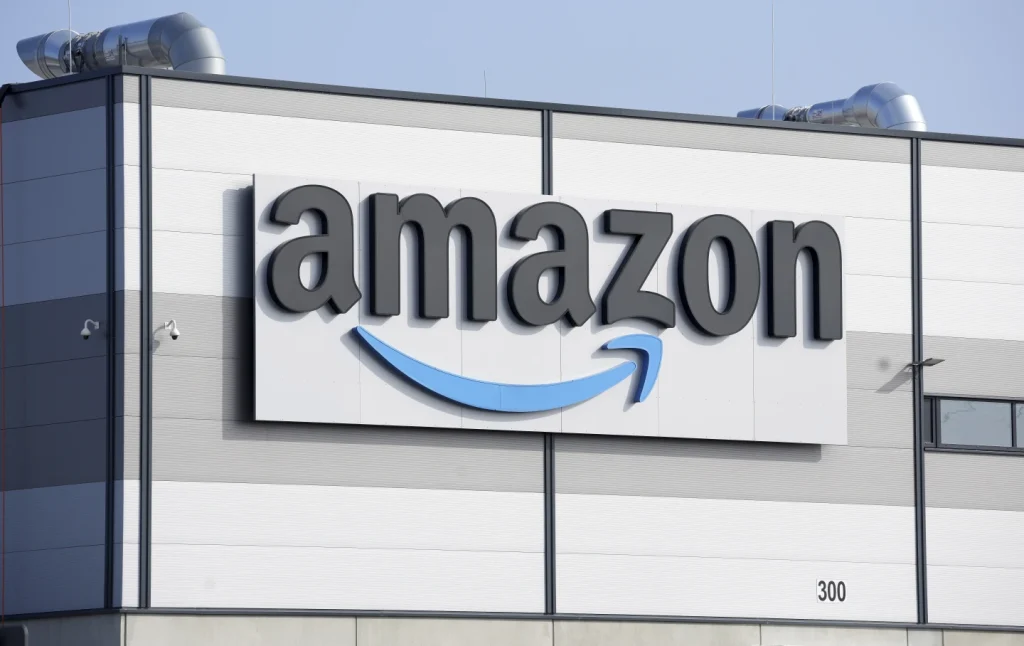The termination of Amazon’s proposed purchase of iRobot, a prominent robot vacuum maker, has sparked widespread interest and concern within the business and regulatory communities.
The decision to call off the acquisition was attributed to what Amazon described as “undue and disproportionate regulatory hurdles,” particularly in the European Union, where regulatory objections to the deal had been signaled.
This turn of events has significant implications for both companies and the broader landscape of competition in the industry.
In a joint statement, Amazon and iRobot expressed their disappointment at the outcome but announced their mutual agreement to terminate the acquisition.
The deal had been under antitrust scrutiny on both sides of the Atlantic, with the European regulators taking a particularly strong stance.
It was anticipated that a final decision on the matter would be reached by February 14th, with the European Commission investigating competition concerns related to the acquisition.
As part of the termination agreement, Amazon will pay iRobot a previously agreed termination fee of $94 million.
However, this development has also led to significant repercussions for iRobot, as the company announced a workforce reduction of approximately 31% and the departure of its CEO.
The impact on iRobot’s stock was also pronounced, with shares tumbling by nearly 19% following the news of the canceled deal.
This turn of events has undoubtedly reshaped the strategic and operational landscape for both companies.
The initial announcement of Amazon’s intent to acquire iRobot for $1.7 billion in cash had generated significant attention within the industry.
However, the value of the deal experienced a notable decline of 15% after iRobot incurred new debt, reflecting the evolving nature of the transaction.
The European Commission, as the top antitrust enforcer within the European Union, had communicated its “preliminary view” to Amazon regarding the potential negative impact of the iRobot acquisition on competition within the industry.
Margrethe Vestager, the commission’s competition chief, highlighted the findings of the in-depth investigation, which suggested that the acquisition of iRobot by Amazon could have resulted in detrimental effects on competition.
Specifically, there were concerns that Amazon’s ownership of iRobot could enable the company to impede the access of iRobot’s rivals to the Amazon Stores.
This could manifest in actions such as delisting or reducing the visibility of rival robot vacuum cleaners, limiting access to commercially attractive product labels like Amazon’s Choice, and imposing higher costs for iRobot’s rivals to advertise and sell their products.
Vestager emphasized the potential economic incentives for Amazon to stifle competition, which could lead to higher prices, lower product quality, and reduced innovation within the industry.
These concerns underscore the significance of regulatory oversight in preserving fair competition and consumer welfare within the marketplace.
The unraveling of the Amazon-iRobot deal serves as a compelling case study in the complex interplay between corporate acquisitions, regulatory scrutiny, and competition dynamics.
It highlights the pivotal role of regulatory authorities in safeguarding competitive markets and preventing anti-competitive behavior that could harm consumers and industry participants alike.
Furthermore, the implications of this development extend beyond the immediate parties involved, resonating with broader discussions on market concentration, antitrust enforcement, and the evolving landscape of competition in the digital age.
As technology continues to reshape industries and business models, the regulatory framework governing mergers and acquisitions will remain a critical aspect of ensuring vibrant and competitive markets.
In conclusion, the termination of Amazon’s acquisition of iRobot underscores the intricate intersection of corporate strategy, regulatory oversight, and competition dynamics.
The implications of this development reverberate across the industry, highlighting the enduring importance of robust antitrust enforcement and competition policy in safeguarding market competition and consumer welfare.
As the business landscape continues to evolve, the dynamics of mergers, acquisitions, and regulatory scrutiny will remain pivotal in shaping the trajectory of industries and the broader economy.
The issue of antitrust regulations and the impact they have on businesses and consumers has been a topic of much debate and controversy in recent years.
The case of Amazon’s purchase and the subsequent scrutiny it faced from regulators in both the UK and the US has brought this issue to the forefront once again.
In June, British antitrust regulators cleared Amazon’s purchase, but the online retail giant still faced scrutiny from the Federal Trade Commission in the US, which filed a landmark antitrust lawsuit against the company last year.
This has sparked a heated debate about the implications of such regulatory actions on the market and on consumers.
David Zapolsky, Amazon’s general counsel, expressed his frustration with the regulators, arguing that consumers would lose out on “faster innovation and more competitive prices” as a result of the regulatory hurdles.
He also emphasized the importance of mergers and acquisitions in helping companies to compete in the global marketplace, particularly in fast-moving technology segments like robotics.
iRobot co-founder Helen Greiner also weighed in on the issue, criticizing the regulatory hurdles that led to the now-defunct deal.
She argued that such regulations represent a picture of government regulation gone awry, suggesting that they discourage entrepreneurship and hinder competition and consumer welfare.
The debate surrounding antitrust regulations is complex and multifaceted. On one hand, regulations are intended to protect consumers and promote fair competition in the market.
However, as seen in the case of Amazon’s purchase, they can also have unintended consequences and hinder innovation and competition.
It is important to strike a balance between protecting consumers and allowing businesses to thrive and innovate.

While regulatory oversight is necessary to prevent monopolistic behavior and anti-competitive practices, it is also crucial to ensure that regulations do not stifle innovation and competition.
The case of Amazon’s purchase and the subsequent scrutiny it faced from regulators highlights the need for a careful and balanced approach to antitrust regulations.
It is essential for regulators to consider the potential impact of their actions on innovation, competition, and consumer welfare, and to strive for a regulatory framework that fosters a healthy and competitive market environment.
In conclusion, the case of Amazon’s purchase and the regulatory scrutiny it faced raises important questions about the role of antitrust regulations in the modern marketplace.
While regulations are necessary to protect consumers and promote fair competition, they must also be carefully crafted to avoid unintended consequences that could stifle innovation and hinder competition.
It is crucial for regulators to strike a balance that ensures a level playing field for businesses while also fostering a dynamic and competitive market environment.
